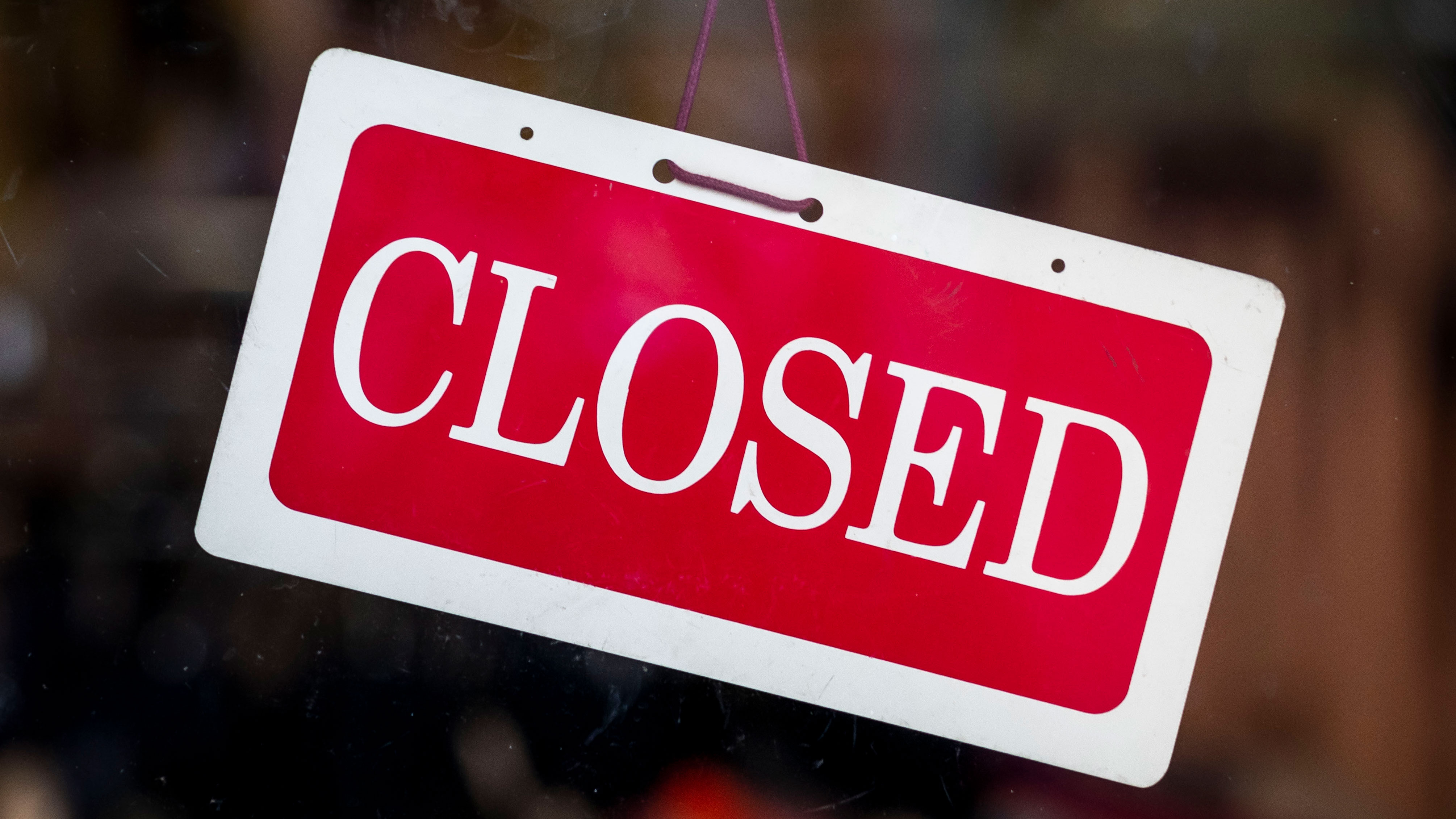Dividends, directors and the holes in the government’s coronavirus furlough scheme
By topping up a minimal salary with dividends, many owner/directors of small companies have fallen through the net when it comes to the government’s furlough scheme. Merryn Somerset Webb asks what is to be done.


Get the latest financial news, insights and expert analysis from our award-winning MoneyWeek team, to help you understand what really matters when it comes to your finances.
You are now subscribed
Your newsletter sign-up was successful
Want to add more newsletters?

Twice daily
MoneyWeek
Get the latest financial news, insights and expert analysis from our award-winning MoneyWeek team, to help you understand what really matters when it comes to your finances.

Four times a week
Look After My Bills
Sign up to our free money-saving newsletter, filled with the latest news and expert advice to help you find the best tips and deals for managing your bills. Start saving today!
I went on the BBC’s Any Questions programme last week. The questions weren’t madly interesting (nothing, for example, on when and how lockdown should end). But there was one that was rather more interesting that it might have seemed.
An owner/director of a small company asked whether the panel thought (as he did) that special provision should be made for people such as him. A large number of owner directors pay themselves only a small part of their income as salary. Anything they need to take out beyond that they take as dividend payments.
Paying a little as salary is important. It means that you build state pension qualifying years and that you can make higher than minimum personal pension contributions – and it helps if you need to take out a mortgage. But, if you want to cut your tax bill, it also makes sense to pay the bulk of your income in the form of dividends: there is no employer’s or employee’s NICs (National Insurance contributions) on a dividend, and dividends attract lower levels of income tax than salary.
MoneyWeek
Subscribe to MoneyWeek today and get your first six magazine issues absolutely FREE

Sign up to Money Morning
Don't miss the latest investment and personal finances news, market analysis, plus money-saving tips with our free twice-daily newsletter
Don't miss the latest investment and personal finances news, market analysis, plus money-saving tips with our free twice-daily newsletter
Dividends are (currently) a legitimate way of minimising your tax bill
The upshot is that, overall, most advisers will suggest that anyone wanting to minimise tax bills set their salary somewhere between the lower earnings limit (to get the state pension years) and the “primary threshold” (where you start paying NICs). Chuck in the tax free allowance of £2,000 on dividends and the smart director can make up to £14,500 a year without paying any income tax at all.
Here’s a nice example from the IFA website Unbiased.co.uk:
Jane takes a salary of £8,600 (keeping below the threshold for paying NICs or income tax on it) and takes a further £30,000 in the form of a dividend. Her total income is now £38,600. She has a tax-free personal allowance of £12,500 in 2019/20, leaving £26,100. Her dividend allowance means the first £2,000 of dividends are tax-free, leaving £24,100 that is taxable. This £24,100 is taxed at the dividend basic rate of income tax, which is just 7.5%. So Jane’s income tax bill for the year will be £1,807. If Jane had taken the whole £38,600 as salary, then her income tax bill would have been 20% of £26,100 – which is £5,220. She would also have to pay £3,596 in NICs. By taking her income in a combination of a low salary plus dividends, Jane has saved over £7,000 in that year.
The good news is obvious. If you are a director/owner and you are keen on tax efficiency you can save an awful lot of money by structuring things correctly (although note it is less simple than it seems as dividends are paid after the companies pay corporation tax at 19%). You can also see how your company is doing every year before deciding at the end of the year how much to pay yourself (although this could be done by paying yourself a bonus inside the PAYE system as well).
The trouble with the furlough scheme
On to the bad. It’s easy for the government to finance staff furloughing – records show who has earned what and when. It’s also relatively easy to deal with the self employed: their tax returns show how much they have previously earned from their work. But when it comes to owner-directors, how is the government to know that you consider the dividend to be earned rather than unearned income?
If it is using tax returns to attempt to replace salaries during the coronavirus crisis, how is it to tell the difference between you paying yourself in dividends from your company and another person getting £20,000 in dividends from, say, an income fund (something that definitely can’t be classified as a sort of salary). We don’t declare where our dividends come from on our tax returns, we just declare the amount.
According to lobby group IPSE (the Association of Independent Professionals and the Self Employed), the result of this difficulty (which the chancellor has not yet managed to resolve) is that some 700,000 owner-directors have fallen through the net (the IFS suggests up to two million) – and, beyond the small payments they might be able to get from furloughing themselves from the salaried part of their work (which most don’t want to do or they can’t legally carry out basic work such as paying suppliers), are getting nothing from the state.
The system needs a proper rethink
So what’s to be done? On Any Questions we all agreed that the answer is “something”. We need these businesses and those who work within them to be offered a bridge to the other side – just like all other businesses and workers.
The solution, then, is probably something like that suggested by IPSE: we let the directors self report their dividend income and also self certify that the dividend income is effectively paid as a salary top up. Later any fraudulently claimed is clawed back, with penalties.
But, after that, we might need to have a full rethink of the inequities in the system. There is something awkward about those who take advice on how to lower their tax bills complaining about being less generously treated by the handout system than those who have had no similar opportunity to avoid tax. And something just as awkward about watching them trying to reclassify what they had wanted to be taxed as unearned income as earned income.
It might just be that, post crisis, we think about taxing earned and unearned income in a more equal way. A simpler system might help us tie ourselves up in fewer of these nasty knots.
Get the latest financial news, insights and expert analysis from our award-winning MoneyWeek team, to help you understand what really matters when it comes to your finances.

-
 New PM Sanae Takaichi has a mandate and a plan to boost Japan's economy
New PM Sanae Takaichi has a mandate and a plan to boost Japan's economyOpinion Markets applauded new prime minister Sanae Takaichi’s victory – and Japan's economy and stockmarket have further to climb, says Merryn Somerset Webb
-
 Plan 2 student loans: a tax on aspiration?
Plan 2 student loans: a tax on aspiration?The Plan 2 student loan system is not only unfair, but introduces perverse incentives that act as a brake on growth and productivity. Change is overdue, says Simon Wilson
-
 Conservatives pledge to cut National Insurance again – how much could you save?
Conservatives pledge to cut National Insurance again – how much could you save?News A 2p reduction in National Insurance is a key feature of the Tory’s general election manifesto.
-
 UK wages grow at a record pace
UK wages grow at a record paceThe latest UK wages data will add pressure on the BoE to push interest rates even higher.
-
 Trapped in a time of zombie government
Trapped in a time of zombie governmentIt’s not just companies that are eking out an existence, says Max King. The state is in the twilight zone too.
-
 America is in deep denial over debt
America is in deep denial over debtThe downgrade in America’s credit rating was much criticised by the US government, says Alex Rankine. But was it a long time coming?
-
 UK economy avoids stagnation with surprise growth
UK economy avoids stagnation with surprise growthGross domestic product increased by 0.2% in the second quarter and by 0.5% in June
-
 Bank of England raises interest rates to 5.25%
Bank of England raises interest rates to 5.25%The Bank has hiked rates from 5% to 5.25%, marking the 14th increase in a row. We explain what it means for savers and homeowners - and whether more rate rises are on the horizon
-
 UK inflation remains at 8.7% ‒ what it means for your money
UK inflation remains at 8.7% ‒ what it means for your moneyInflation was unmoved at 8.7% in the 12 months to May. What does this ‘sticky’ rate of inflation mean for your money?
-
 Would a food price cap actually work?
Would a food price cap actually work?Analysis The government is discussing plans to cap the prices of essentials. But could this intervention do more harm than good?